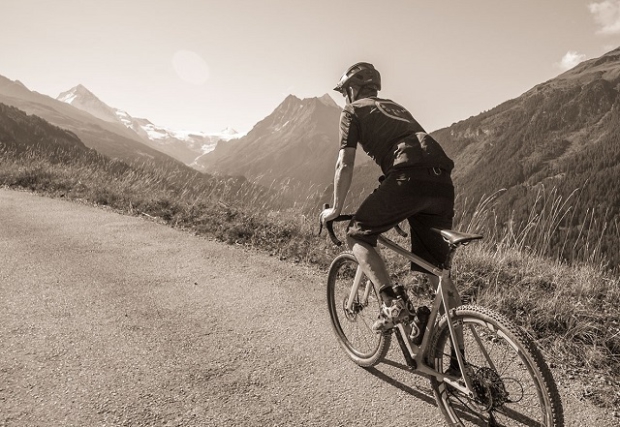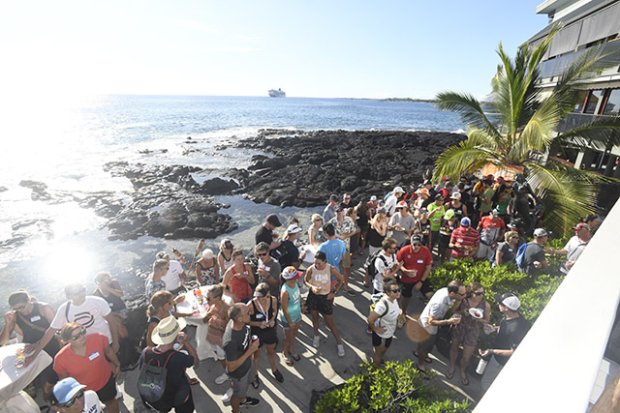Refuse to Accept Failure
Three things were made clear to me in my discussions with IRONMAN about its eventual race reopenings. First, that races were likely to become very local. Germans racing in Germany. Kiwis racing in NZ. Texans racing in Texas and so forth. The sort of mass long distance travel, with Germans making up a third of Ironman Florida, was not going to be a feature of racing over the next year.
Second, races would take place when each location deemed an event appropriate, for whatever reason. If a host community agreed that an IRONMAN race could take place, then IRONMAN was going to schedule and produce the race.
Lastly, regardless of whether that host community was strict or not in its pursuit of intrusive public health measures, IRONMAN itself would aggressively pursue its own in-race safety practices (no-touch registration, one-way expo traffic, a less dense expo, no-hands aid station handoffs, less course density, and so on).

IRONMAN Lubbock 70.3 just got cancelled, one day before participants would en masse travel to it (some would-have-been participants are already there). There’s a lesson here:
Not all host community reopenings are created equal, and IRONMAN and its customers should think about this.
There are two kinds of reopenings: the first, the kind where the location follows consensus public health best practices, beats down the virus, has it under control, and cautiously considers it safe to allow an IRONMAN race to go, pursuant to the safety procedures IRONMAN has in place. Then there’s the kind where the community (the country, or the state, or the county) that is more cavalier about the virus, might deny epidemiological best practices, where politics – not economics, but politics – inform public policy, or which has good intentions but simply caves to the pressure of local tantrum throwers.
This virus messed with Texas. Please don’t interpret this as a Californian lecturing Texans on how to handle this pandemic. There were 5,551 new COVID-19 cases reported out of Texas yesterday; in my home state there were 7,149. We blew it. Both our states blew it.
What we’ve learned is that even the most backward, illogical, unscientific approach to public health will eventually give way to this virus. IRONMAN Brazil has been postponed from August 16th to November 8th of this year. Brazil may have the dubious distinction of owning the highest daily new case totals in the world – making it the only country to outpace my own. But it shares two similarities with the U.S.: neither of our countries have hit their peak; and both countries lack a robust, national exhortation gauged toward consensus best practices.
At some point the virus will overwhelm Brazil’s cavalier posture, and IRONMAN will have done all that work, all that planning, for nothing. Just as with what happened in Lubbock. The one small saving grace is that not that many contestants will have to worry about unrecoverable travel costs, because for now all racing, like all politics, is local.
This lesson is not just IRONMAN’s to learn. Do we want to race again? Do we want to swim again? If so, we can do more than wish for it. This is particularly galling to me because I, like you, have embraced an ethos of endurance, of holding pace, of not flagging, of persevering to the end, of knowing and embracing the discomfort that happens in the back half – the hard half – of an effort. I’m watching as my country has given up – has failed to persevere.
I’m not talking about the choice between economics and public health. It’s the simple things. The mask! And the avoidance of environments this virus loves. I have profound sympathy for those who've lost their incomes or their businesses. The hard decisions are close calls. But my country DNFed on the easy stuff, before it even broke a sweat.
You and I read white papers. We believe in the science of fluid dynamics. We look at rolling resistance tests, we listen to our coaches, and we agree that our best practice is to follow what has been demonstrated in peer reviewed journals. And then, inexplicably, we choose to let our politics inform our epidemiology. This is incongruous. When we behave like this – selectively choosing when a professional consensus guides our public response – then our worldview has no anchor. We, as a community given over to a rather spartan attention to discipline and lifestyle, are better than that.
I’ve written many letters and emails over the last 3 months to my county supervisor and my local city officials. I’ve confronted managers of the places where I shop, and have written national headquarters. Masks. Space. My message to these store owners and community officials is: don’t give up now. Don’t lose your nerve. When your lack of vigilance forces you to again require the use of masks and distancing, this customer will already be gone. Better to emulate best practices now. For those communities who feel best practices are voluntary, fine. I’m with you… when you also decide adherence to traffic lights are voluntary.
Multiple crises face the country in which I live right now, and I see a common theme: a true crisis cannot be overcome through a civilization’s inaction and complacency. A major event cannot be won by everyone waiting for someone else to fix it. Because of our particular ability to see things through to the end; to not give up or give in; to recognize the inherent value in perseverance; to respect the power of endurance – we have a spot reserved in the vanguard. We have the privilege of demonstrating by gentle example what winning looks like, mask by mask.




